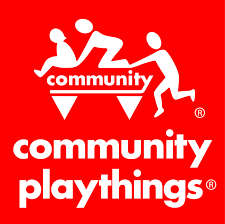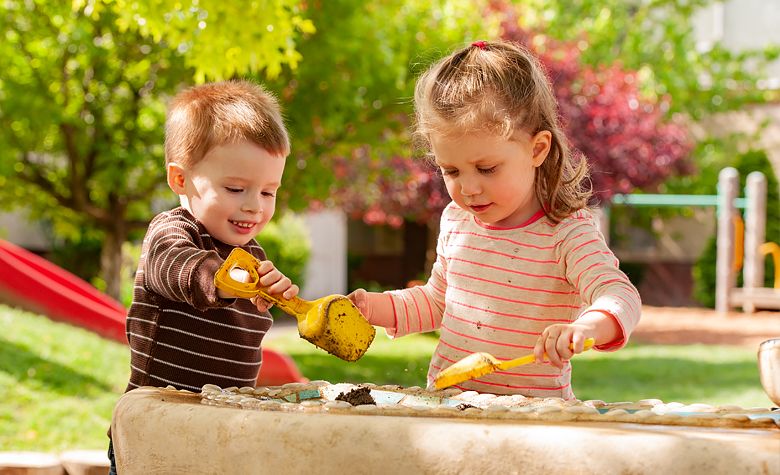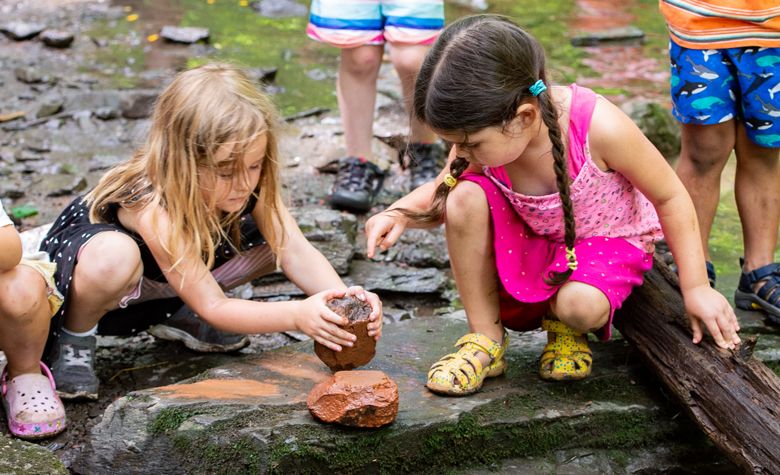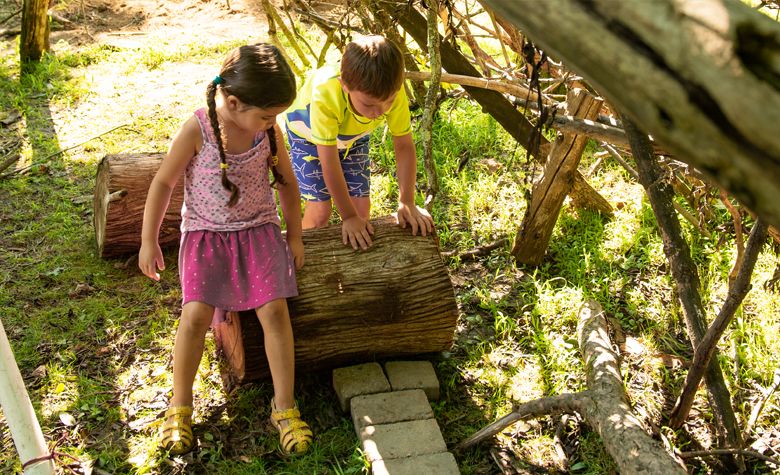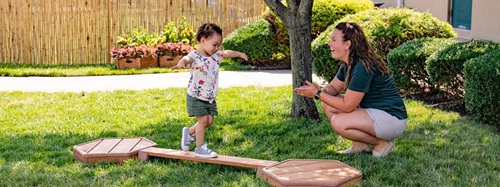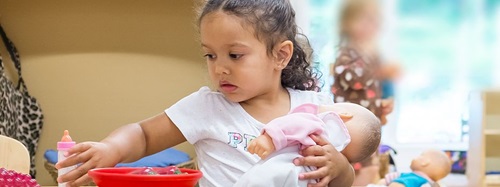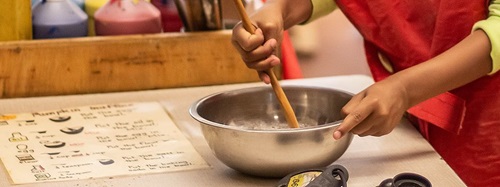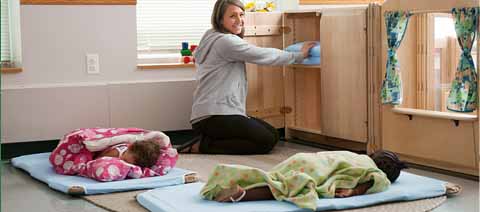Why Play Deprivation is a Serious Problem
| April 2021A radio host asks the children one by one what they are most looking forward to in 2021. The very first child they interview blurts out, “I cannot wait for this pandemic to end! I miss my friends. My mom won’t let me play.” The interview host hastily moves on to the next child, but it is no use. I’m already in full blown ugly cry mode. This honest child’s confession pierced my heart. As a play advocate for children, I know that children are in serious danger right now. It has been over a year now since the pandemic first hit and children everywhere are suffering—sometimes silently.
In the name of “safety,” children are being overly restricted and isolated from one another. Playgrounds have been shut down. Children are told to stay apart at parks and during playtime. They are separated by Plexiglas during lunch. In some countries, children are even being sent home and reprimanded for simply making a snowman with another child! Exercise is okay, but no socialization is allowed (Merrick 2021). This is leading to a form of play deprivation on a scale we’ve likely never seen before.
According to psychiatrist, Stuart Brown, when children are deprived of play, the consequences can be catastrophic. In 2014, he was already sounding the alarm of societal and global play deficits on children. The pandemic has significantly heightened and worsened this growing problem. Dr. Brown states that sustained, moderate to severe play deprivation particularly during the first 10 years of life is linked to major emotional dysregulation; i.e., increased prevalence of depression, a tendency to become inflexible in thought, diminished impulse control, less self-regulation, poor management of aggression, and fragility and shallowness of enduring interpersonal relationships (Brown S.L. 2014).
This classic quote from the developmental psychologist Brian Sutton-Smith sums up the powerful nature of the play experience, and at the same time touches on the awful consequences of a lack of play: “The opposite of play—if redefined in terms which stress its reinforcing optimism and excitement—is not work, it is depression.”
Play, especially outdoors, is exactly what children need (more than ever) in order to connect and heal through this collective trauma together. One research project on a group of sixteen abandoned children living in a ward of a Romanian pediatric hospital, was especially eye-opening. The children, ranging in age from one to ten years old, had suffered chronic neglect and abuse. They had spent most of their lives tied to a cot. Although able to see and hear the other children, they were unable to leave their cots, and so experienced little in the way of social interaction. Despite living most of their lives in a hospital ward with fifteen other children, they had not formed any relationships with each other.
During a period when nothing changed in their lives, other than their introduction to the playwork project, the children themselves changed dramatically. Their social interaction became more complex; physical activity showed a distinct move from gross to fine motor skills; the children’s understanding of the world around them was improved; and they began to play in highly creative ways. They no longer sat rocking, staring vacantly into space. Instead, they became fully engaged active human beings. The article further proposes that the most powerful healing factor was the “unfettered playful interaction between the children themselves.” In other words, the children in a very real sense may have healed each other while playing (Brown F., 2014).
This past year, our outdoor play experiences at TimberNook were in high demand as parents struggled to get their children the socialization and play that they so desperately needed. For most children, the only time when they are in control of their world is when they are playing. The play schemes we witnessed ranged from power struggles and battle cries, to re-enacting funerals, to even holding protests. The emotions were high and varied. Children craved sensory experiences more than usual. New friendships were made, laughter reigned throughout the woods, and children announced things like, “I almost forgot about the pandemic” while they were with us. In many ways, we served as a sort of refuge away from the adult world this past year for children.
I recently received a letter from a parent describing just how important these play opportunities are for kids right now:
Hi Angie,
Thank you for yet another wonderful day at TimberNook! I wanted to share how impactful your program is for our son, Philip. I know we discussed how he had multiple tics develop during remote learning last Spring. They were with him all the day and night, and impacted his day “big time.” They went away after 3 hours of TimberNook this past July. And they didn’t come back.
We now homeschool Philip for this very reason, but try to stay connected to his teachers/classmates, etc. Last Thursday, the children at his school were first invited back to the outside grounds, where they did social connection types of things while masked/all of these rules that are necessary for the public school setting, etc. He was there for 1.5 hours. He was with familiar children and familiar teachers, outside of his familiar school.
I picked him up, and he was absolutely exhausted and drained, and needed me to read to him for like 3 hours afterwards to unwind, and then take a long bath. It was so upsetting to observe his body moving so out of control again. It seems that he enjoyed being there, but he said it was way too long and he can't put into words what they did. He was paying attention to all of the details and trying to understand the environment/new rules/etc.
Long story short, after 1.5 hours, he climbed into my car and the tics were back for the first time since TimberNook camp in July. We focused on a lot of deep play and no pressure activities and they were slowing down. I noticed when I picked him up from TimberNook this past week they were gone again!
After TimberNook Philip is tired, but energized, and so happy/content. Like his body can settle in. He bubbles into the car and describes so many exciting things about his day. He goes on and on about it. Today he said, “it was just so fun. It was the best!" For our family, TimberNook is what is grounding Philip and helping him function as the child he truly is, during a time when so much has changed in his world.
See you next week!
Cindy
When I first read her letter, I was shocked. It was amazing that the simple act of being able to play with other children outdoors (unhindered by adult fears) could give this child exactly what he needed to thrive neurologically.
All of our children deserve this. Each and every child, both small and big, should have an opportunity to play during the pandemic. Even if it is with just a small group of children or one other child for that matter! It is how children of past generations got through hardships. A few weeks ago, a small group of children clasped hands while they were in our woods. They slowly started rotating in a circle.
“Ring-a-round the rosie, a pocket full of posies, ashes, ashes, we all fall down.” They collapsed into the soft snow in a fit of giggles.
This song came about during a period of historical struggle. A game children played to make sense of that scary time. We need to let them do the same now.
We must prioritize play opportunities moving forward both in the home and school settings so that children can begin to form relationships again. In fact, children need extended periods of playtime (hours!) in order effectively meet their social emotional needs right now. Our time to advocate for children’s needs has never been more warranted. Play deprivation is a serious problem. It needs to be addressed and promptly – while there is still time.
References:
Brown F. 2014. The Healing Power of Play: Therapeutic Work with Chronically Neglected and Abused Children. Children (Basel, Switzerland), 1(3), 474–488. https://doi.org/10.3390/children1030474
Brown, S.L. 2014. Consequences of Play Deprivation. Scholarpedia, 9(5), 30449 http://www.scholarpedia.org/article/Consequences_of_Play_Deprivation
Merrick, J. 2021. “Ministers accused of ‘over-zealous’ lockdown rules on children’s play after boys sent home for making snowman” iNews. Published 2/10/21. https://inews.co.uk/news/politics/ministers-accused-over-zealous-lockdown-rules-childrens-play-outside-snowman-867085
